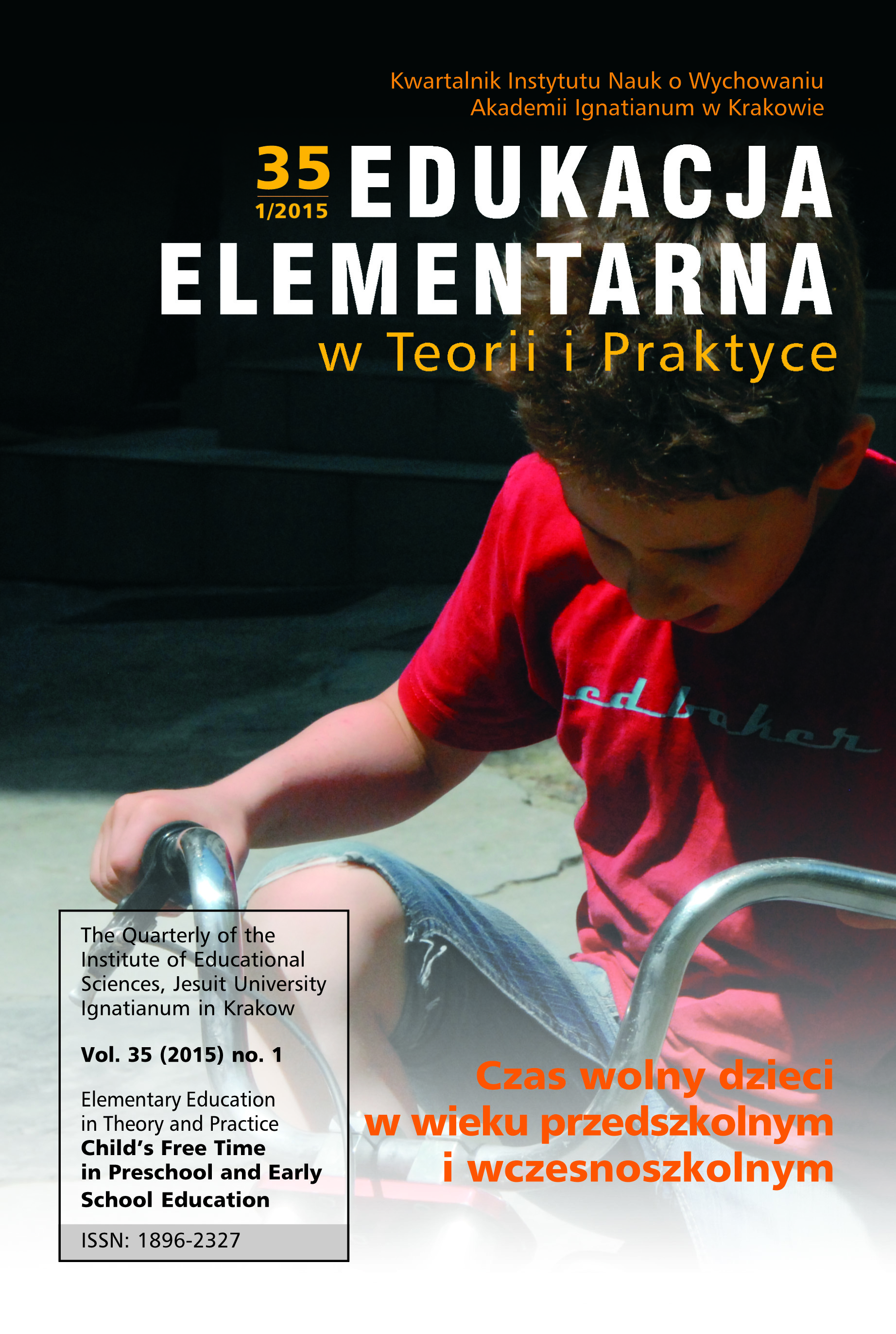Znaczenie spontanicznej zabawy dzieci w wieku 6–10 lat w czasie wolnym – polemika z filmem Wyreżyserowane dzieciństwo, reżyser Scott Harper (2011)
The Significance of Spontaneous Play Elementary Education in Spare Time. A Polemics with the Documentary Film “Lost Adventures of Childhood”, Director Scott Harper (2011)
Author(s): Izabela Bieńkowska, Jolanta Walaszek-LataczSubject(s): Social Sciences, Education
Published by: Uniwersytet Ignatianum w Krakowie
Keywords: spare time; spontaneous play; contemporary education; supervision and restriction of children autonomy;documentary film;
Summary/Abstract: The article is an attempt to make parents and educators aware of dangers related to those contemporary methods of education and parenting whose center of gravity resides in the obsession for perfection as well as the total organization of a child’s life both at present and in the future. Parents’ fears or dismay become aggravated by mass media which bombard society with negative coverage showing risks and perils that may possibly affect children’s well-being. Being a reason for parental efforts to introduce excessive control over their children, to multiply prohibitions and regulation, and to deny any form of childlike freedom, the mediainduced aura of fear leads to the complex of a “burnout child”; that is, a syndrome of features that characterize a child who is overload with learning (very often before the very beginning of formal education), stressed, and suffers from obesity, depression, short-sightedness and many other dysfunctions. Contemporary forms of parenting have been extensively criticized by psychologists, pedagogues, educators and parents like Carl Honoré, the author of Under Pressure. Putting the Child Back in Childhood, or Hara Estroff Marano, a distinguished American child psychologist. Furthermore, the problem has been shockingly and blatantly presented in Scott Harpers’s documentary Lost Adventures of Childhood. Aired in Poland in 2011, the movie has instigated heated debates and discussions, especially in the pedagogical milieu. The documentary film aims to compare and contrast present-day parents’ childhoods and the childhoods typical of contemporary children, and juxtaposes spontaneous play in parks or in streets with the all-pervading sense of educational pressure that organizes children’s spare time and deprives them of joy that was previously associated with easy-going, unrestricted and unplanned play. The efforts taken to organize children’s spare time result in their discouragement and weariness. The article whishes to prove that the question whether one should bring up and educate children in an organized and versatile way or, conversely, one should grant them chances of personal fulfillment and joy of life may be positively answered. Likewise, may the reader be able to answer that question single-handedly after reading the article.
Journal: Edukacja Elementarna w Teorii i Praktyce
- Issue Year: 10/2015
- Issue No: 1 (35)
- Page Range: 155-172
- Page Count: 18
- Language: Polish

